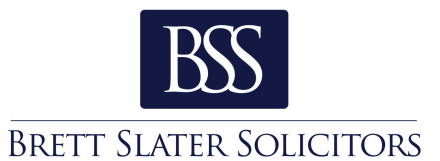Business Visas – The meaning of “main business” in a Visa application
The meaning of “main business” in a Visa application
The Federal Court in the case of Synman & Anor v Minister for Immigration & Anor (2015) considered the meaning of “main business” in migration law in the context of several businesses being operated. The visa applicant in this case was one of two shareholders, and he owned 50% of the shares in a company (“Cutman”) incorporated by him and his son.
Since its incorporation, Cutman had operated five businesses in Australia: a hair and beauty business, a meat business, a “fusion” business; an engine monitoring system business and a cafe. All five businesses used a single Australian Business Number (ABN) and all were registered under the name of Cutman. The accounts of each business were consolidated under Cutman accounts.
In order to be granted a Business Skills (Residence) (Class DF) Subclass 892, a visa applicant has to demonstrate, amongst other things, an ownership interest in a “main business or main businesses”. The visa applicant in this case relied on Cutman as his “main business”.
Definition of “main business”
Unhelpfully the definition in the regulations does not define the term “business” and it is not defined elsewhere in the Regulations. The definition (in r.1.11) sets out cumulative criteria to be satisfied by a visa applicant to establish a main business or main businesses.
These relate to the visa applicant’s ownership interest in the business, their day-to-day involvement in the business, the value of the business and turnover amounts. (It also states that if a visa applicant has, or has had, an ownership interest in more than one qualifying business that could be a main business, the visa applicant must not nominate more than two of those qualifying businesses as main businesses.)
The Department’s assessment
The Department of Immigration and Border Protection invited the visa applicant to comment on the Department’s assessment that his net business assets in Australia did not meet the threshold amount required by the Regulations, because according to the Department’s policy guidelines, his net interest in only two nominated businesses could be considered in determining his ability to meet the threshold requirements for the visa, and this threshold was not met.
The visa applicant (through his migration agent) argued that only one main business had been nominated for the purposes of the application. This was Cutman, which he said had conducted five separate business activities since its incorporation, rather than five different businesses. The Department did not accept the visa applicant’s submissions and refused to grant the visa.
Review and appeal
The applicant applied to the Tribunal for review. The Tribunal affirmed the decision to refuse the visa. The applicant then appealed to the Federal Circuit Court, which found that the Tribunal had erred in making its decision. The Minister for Immigration then appealed to the Federal Court.
The Federal Court allowed the appeal, (so the decision to refuse the visa stood).
The Federal Court considered that the Tribunal had not misinterpreted the law. It stated that the Tribunal had found as a matter of fact, that there were four discrete businesses operated by Cutman (the café business had subsequently been sold and was not included). It had rejected the visa applicant’s submission that the businesses should be viewed as separate activities that were part of a main business operated by Cutman.
The Federal Court found that the Tribunal considered the circumstances of Cutman, and had found that the four activities were “very different, very individual businesses”. The Federal Court found that the consolidated financial statements of the businesses did not compel a different finding. It also indicated that it considered it significant that the visa applicant had informed the Tribunal that he had acquired a “very particular business” (the meat business) to try and meet the turnover requirement.
The Federal Court also accepted the Minister’s submission that r. 1.11(2) (which defines “main business”) should be construed so that, where a visa applicant has ownership interests in more than one qualifying business, they can only nominate two businesses as main businesses, regardless of whether the businesses are operated by different entities or the same entity.
What does this mean for other visa applicants?
This Federal Court decision may be of interest to the current holders of the following provisional visas, who may be interested in applying for State/Territory Sponsored Business Owner visa (subclass 892): Business Owner (Provisional) visa (subclass 160), Senior Executive (Provisional) visa (subclass 161), Investor (Provisional) visa (subclass 162), State/Territory Sponsored Business Owner (Provisional) visa (subclass 163); State/Territory Sponsored Senior Executive (Provisional) visa (subclass 164), State/Territory Sponsored Investor (provisional) visa (subclass 165), Business Talent (Permanent) visa (subclass 132).
It should be noted that visas 160-165 are closed to new applicants.
This decision is important for a number of reasons:
• First, a finding about whether the particular activities of a company should be construed as separate businesses or the operation of a single main business comprised of a number of separate activities or ventures is a finding of fact for a decision maker.
• The differences between those business activities is an important consideration in that determination, particularly when the company performs no business functions separate to those separate business activities, apart from their consolidated accounting.
• A common ABN or consolidated accounts is not determinative of the issue.
• Further, the visa applicant is allowed to nominate no more than two of the separate businesses of the company to meet the requirements of the Regulations.
As considerable expense and migration outcomes are at stake it is very important to seek independent, professional legal advice in regard to business acquisition and structuring of business activities.
Brett Slater Solicitors are highly experienced in business visas and skilled business visas. If you or someone you know wants more information or needs help or advice, please contact us on 02 9299 5815 or email .



